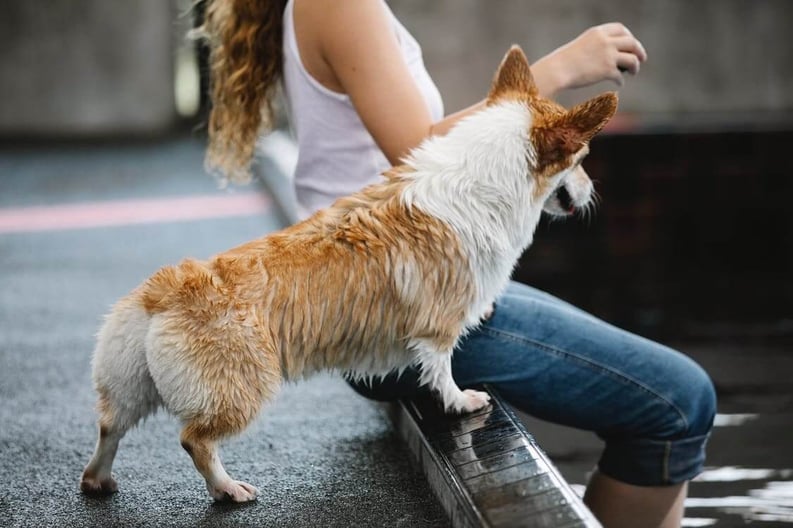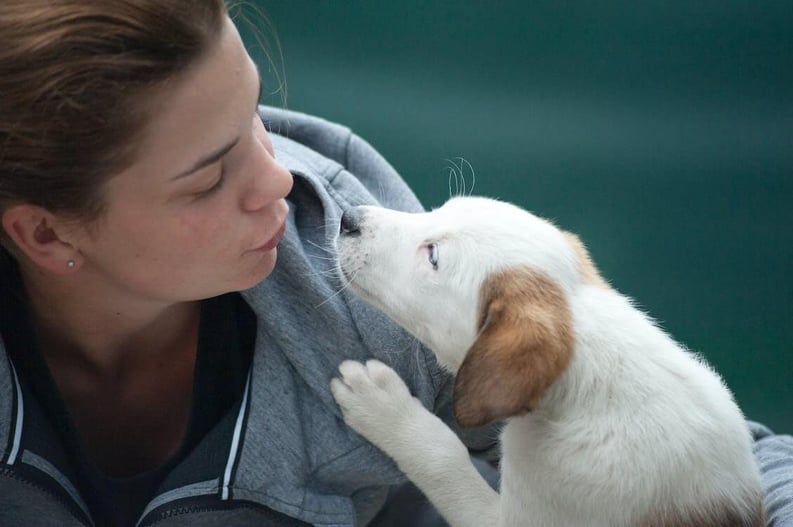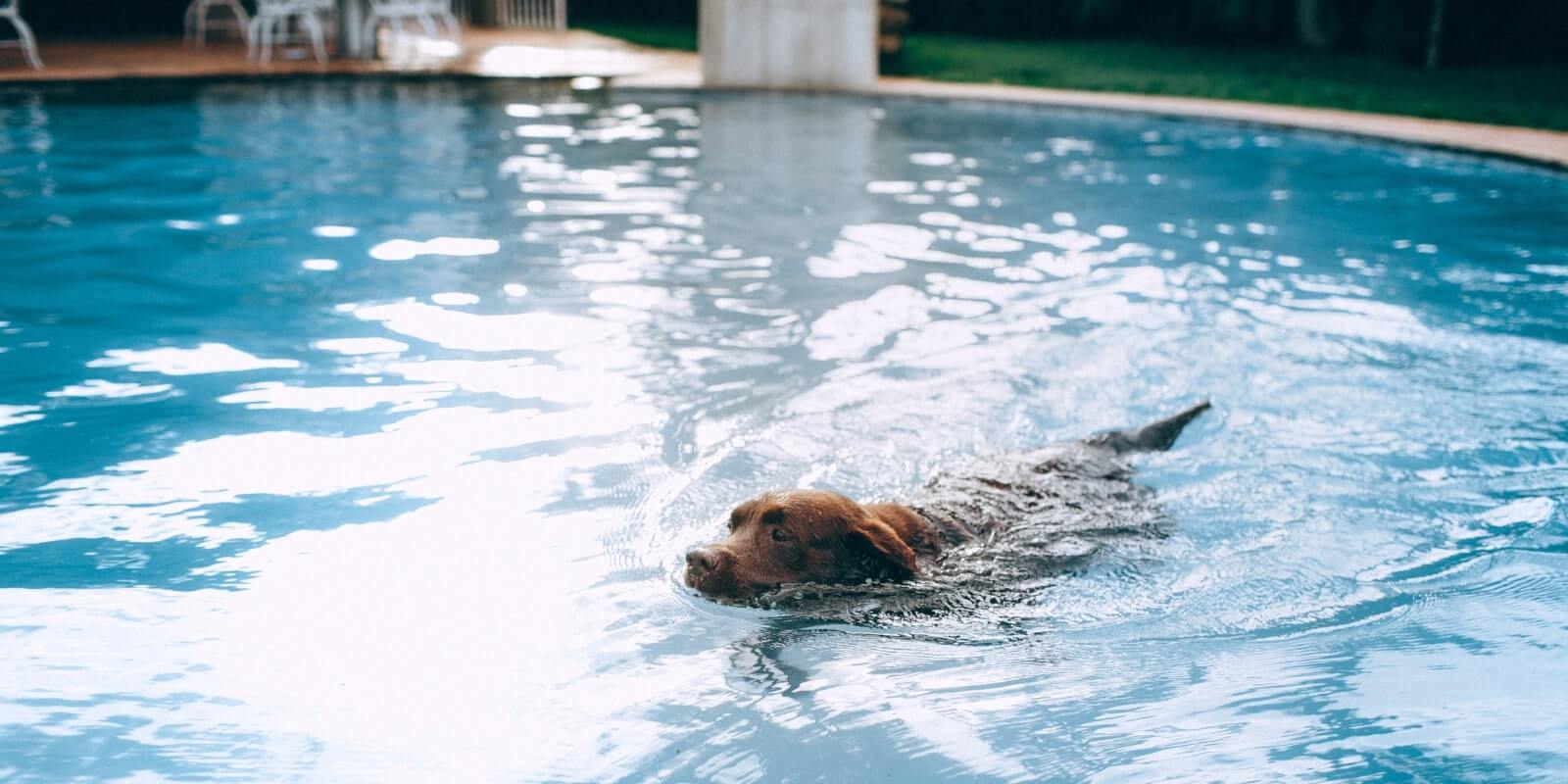Most dogs really love the water, which means that as the warmer weather rolls around they might decide to jump into the pool with you. Certain dog breeds are really drawn to the water and your dog might spend more time in the swimming pool than you may have imagined. This can also lead to questions about whether or not pool water is unsafe for your dog to drink.
If your dog has leaned over to drink out of the swimming pool before, don’t panic yet! A small amount of pool water is not dangerous for dogs to ingest. Swimming pools are not usually highly chlorinated, which means that your dog taking a drink of the water in your pool is likely not a concern. The only time that your dog might run into trouble when drinking pool water is if they consume a lot of it.
If you want to know some more about whether or not dogs can drink chlorine water, read on.
Symptoms of Chlorine Poisoning in Dogs
While it is not common for your dog to drink enough chlorinated water to get sick, dog owners should know the symptoms of this condition. Early recognition of toxicity in dogs can make all the difference in providing them with the proper care.
The common symptoms of chlorine poisoning in dogs are:
- Vomiting
- Restlessness
- Loss of coordination
- Falling down
- Bloating
- Lethargy
- Pale gums
- Dilated pupils
- Glazed eyes
If your dog has been near the pool with you and starts to show these symptoms, you need to take them to the vet right away. The earlier toxicity is addressed, the greater the chance for a quick and speedy recovery.
In most cases, the signs of your dog’s overexposure to chlorine will be milder. Your dog may change their eating patterns, or they may just appear to be acting a bit differently. Chlorine irritates the lining of the gut, so your dog could feel a little nauseous and not as energetic as normal. It can be hard to isolate the reason for your dog’s lethargy and lack of appetite, but if you have a pool, this could be the culprit.
Make sure that you keep an eye on your dog around the pool each day. If they are drinking from the pool often, this is likely the cause of their lack of energy and poor appetite. Learn about other household items that could poison your pet.
Treatment for Chlorine Poisoning in Dogs
Your vet will assess your dog’s overall condition and if they are suspected of having chlorine poising, they will probably put your dog on IV fluids and keep them for observation. Chlorine irritates the digestive tract, so your dog might need to be supported with IV fluids for a few days until they can eat or drink again. Just like in other poisoning cases, activated charcoal might be used to try and gather up the chlorine to prevent it from entering the bloodstream.
If your dog is stable for a few hours at the vet clinic and seems to have become stable enough to go home, they will likely be released. More serious cases might need a few days of support before they can go back home.

How to Prevent Chlorine Poisoning in Dogs
The best way to keep your dog from drinking pool water is to be sure that you offer clean water that is readily accessible at all times. This will naturally discourage your dog from drinking out of the pool, but you can also try covering your pool when it is not in use. If your dog continues to drink from the pool, you might need to restrict access to the pool area.
If you are going to be increasing the chlorine to “shock” the water, keep your dog away from the pool to avoid the risk of a poisoning incident. Dogs can sometimes be tempted to drink from any body of water, even when they have access to a bowl of clean water. Making sure that your dog is not unsupervised around the pool is often the best way to prevent this health risk.
If your dog loves to swim in the pool, you will want to consider keeping your pool’s chlorine levels lower than normal. There are also some alternatives to traditional chemical support for pools that are not dangerous to dogs. You could make the change to this kind of pool treatment for a dog that won’t stay away from the pool water.

Chlorine Poisoning Can be Serious in Rare Cases
If your dog insists on drinking from the pool in your yard, the reality is that they might overdo it and make themselves very sick. This risk can be worrisome to people who own a pool and have trouble keeping their dog away from it. Dogs are not always very discerning about the water that they drink or what they eat. This can sometimes make it tougher to keep your dog from being exposed to toxic substances.
Training your dog to stay away from the pool can be a great way to manage this potential risk, but pet insurance can also be a big help. Having a quality pet insurance plan protecting your dog’s well-being can make you less worried about the possibility of emergency vet bills. Knowing that you can afford to get your dog the help that it needs in an emergency situation is important.
Being sure that you can cover your pet’s medical expenses can be very comforting and can offer you peace of mind. If you need a quality pet health insurance plan that will cover your dog’s medical care, let us help. Contact Furkin for a quote today and get the right pet insurance policy to fit your needs.



